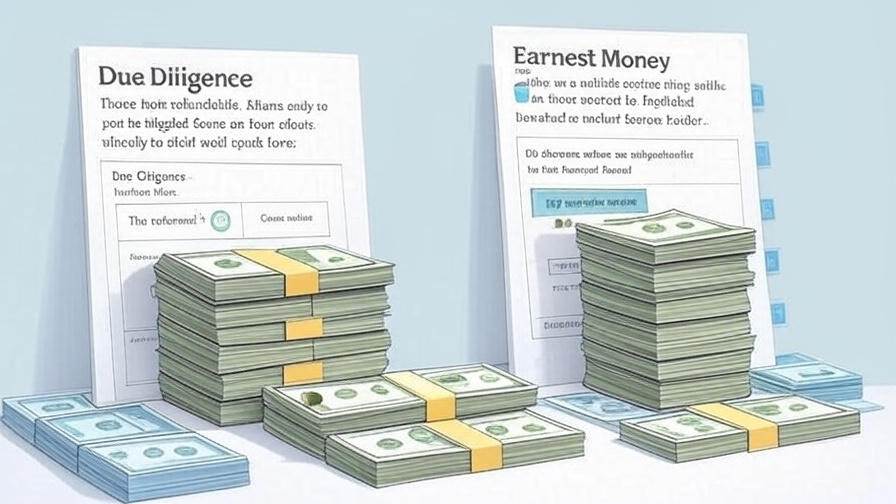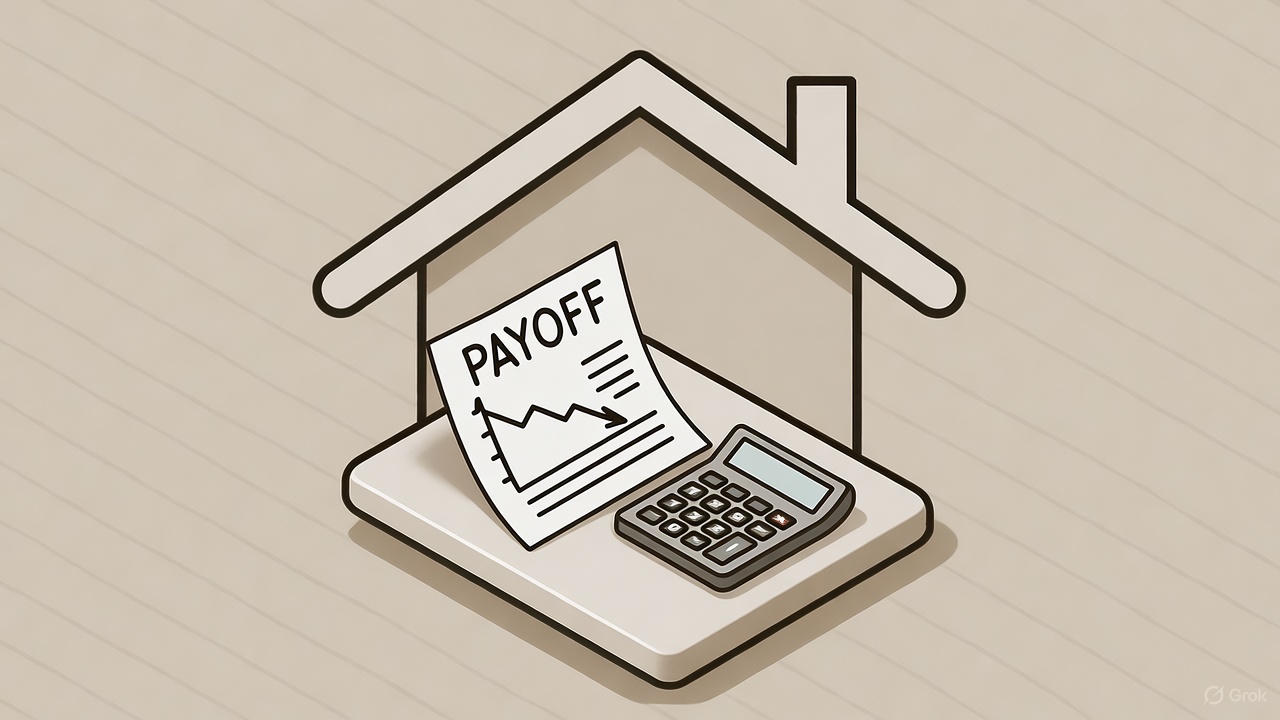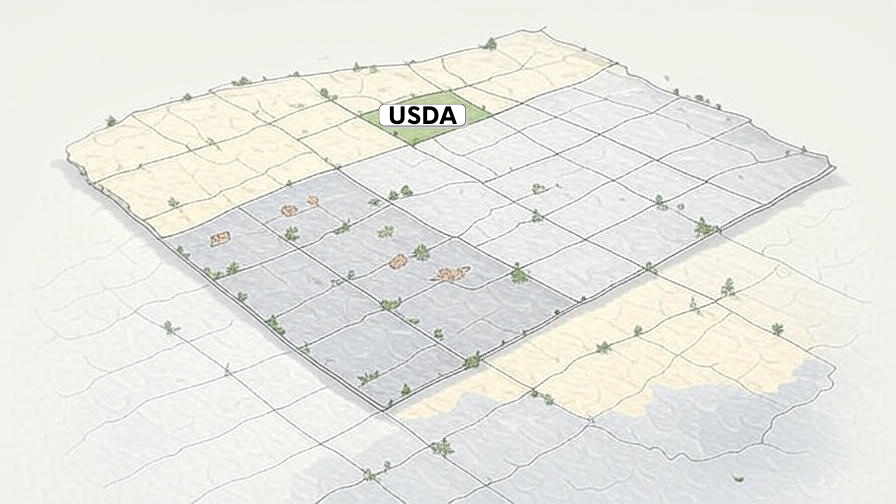Understanding which money you keep versus lose when backing out of a home purchase can save you thousands. Here’s how due diligence fees and earnest money work differently in NC, plus the real cost of changing your mind.
The two pots of money explained
NC uses a unique dual-money system that confuses buyers from other states. Due diligence fee goes directly to the seller at contract signing—think of it as paying for the exclusive right to investigate the property. Earnest money sits in escrow as a good-faith deposit showing you’re serious.
Due diligence fee: $500-$2,000 → Seller keeps immediately
Earnest money: $1,000-$5,000 → Held in escrow
Numbers vary based on home price and local competition.
The key difference: due diligence fee is gone if you walk away for any reason. Earnest money has protection during your investigation period and through valid contingencies.
VA loan note: Due diligence fees are never refundable with VA financing since they’re not considered deposits under VA guidelines—only earnest money qualifies for protection.
Walk-away scenarios by timeline
Your financial exposure changes as you move through the contract timeline:
During due diligence period: You can exit for any reason and keep your earnest money. You lose only the due diligence fee. This covers everything from cold feet to inspection discoveries to financing hiccups.
After due diligence ends: You’re committed unless specific contingencies apply. Walk away without cause and you typically forfeit both fees. Valid reasons include appraisal gaps beyond your agreed limit or loan denial despite good faith effort.
At closing: Refusing to close without valid contract reasons means losing both deposits plus potential additional damages the seller can pursue.
When buyers typically decide to exit
Most exit decisions happen during specific pressure points. Inspection results that reveal expensive surprises trigger about 30% of walk-aways. Financing delays or denial cause another 25%. The rest split between appraisal gaps, life changes, or simple buyer’s remorse.
Smart buyers use the due diligence period strategically—scheduling inspections early, getting loan pre-underwriting started, and having honest conversations about comfort level with the monthly payment reality. For deeper insight into buyer hesitations, see What Stops Buyers From Making an Offer.
How contract terms affect your risk
Your contract language determines what protects your earnest money beyond due diligence. Financing contingency protects you if denied despite applying promptly and providing required documents. Appraisal contingency lets you exit if value comes in low, though many buyers waive this in competitive markets.
VA buyers get additional protections: if the appraisal comes in below contract price, you can exit and recover earnest money regardless of contingency language. The due diligence fee stays with the seller since VA doesn’t recognize it as a protected deposit.
Due diligence length matters too. Shorter periods (3-7 days) reduce your investigation time but lower your offer risk in competitive situations. Longer periods (10-14 days) give more flexibility but may weaken your offer appeal.
Some buyers negotiate repair credits or seller contributions that effectively offset their due diligence fee if minor issues surface.
Common mistakes that cost money
Three expensive errors buyers make:
- Missing due diligence deadline by assuming weekends don’t count—they do, and missing it by one day can cost your earnest money.
- Waiving contingencies to strengthen offers without understanding the financial exposure if things go sideways.
- Not reading repair contingency language carefully—some contracts require seller agreement on repair costs before you can exit.
Local market context
Raleigh’s current market shows due diligence fees averaging $1,000-$1,500 for homes under $500k. Charlotte tends slightly higher due to price points. Durham falls in between. When inventory was tighter in 2021-2022, fees spiked to $3,000+ on competitive properties.
Today’s shifted market gives buyers more time to think and negotiate. Multiple offer situations are less common, reducing pressure to maximize due diligence fees for offer strength. For current market dynamics, check out Buyers Have Leverage Again.
FAQ
Due diligence fee goes to the seller immediately and you lose it if you walk away. Earnest money stays in escrow and you typically get it back unless you breach the contract.
No. During the due diligence period, you can walk away for any reason and keep your earnest money. You only lose the due diligence fee.
You typically forfeit both the due diligence fee and earnest money unless you have specific contract contingencies like financing or appraisal protection.
Typical range is $500-$2,000 depending on home price and market competition. Higher fees can strengthen your offer but increase your walk-away cost.
Yes, if you breach after due diligence ends without valid contingencies, sellers typically keep both the due diligence fee and earnest money as damages.
VA loans don’t recognize due diligence fees as protected deposits, so they’re never refundable. Only earnest money gets VA protection if you exit due to appraisal or financing issues.
Need help structuring a smart offer?
I’ll review your draft contract and show where to shift risk in your favor—balancing offer strength with your walk-away protection. Get the house without overpaying in fees.
Ready to apply? Start your pre-approval · 984-289-6479




